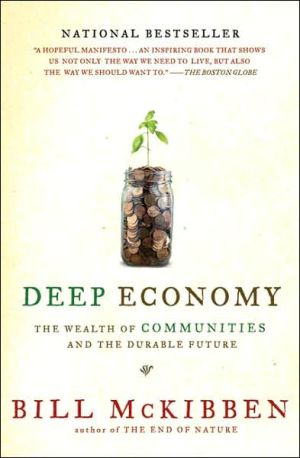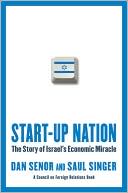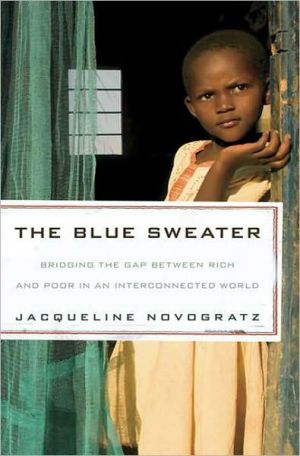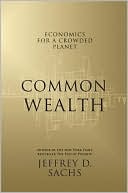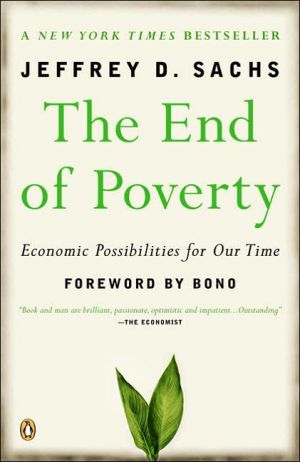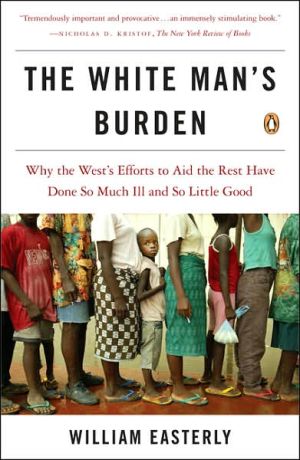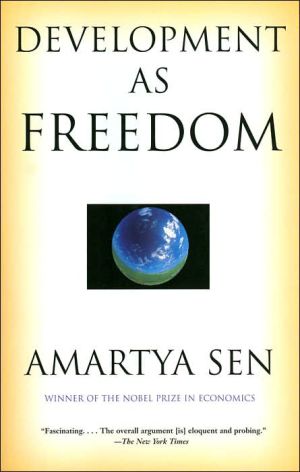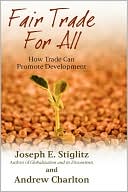Deep Economy: The Wealth of Communities and the Durable Future
In this powerful and provocative manifesto, Bill McKibben offers the biggest challenge in a generation to the prevailing view of our economy. Deep Economy makes the compelling case for moving beyond "growth" as the paramount economic ideal and pursuing prosperity in a more local direction, with regions producing more of their own food, generating more of their own energy, and even creating more of their own culture and entertainment. Our purchases need not be at odds with the things we truly...
Search in google:
"Masterfully crafted, deeply thoughtful and mind-expanding."—Los Angeles TimesIn this powerful and provocative manifesto, Bill McKibben offers the biggest challenge in a generation to the prevailing view of our economy. Deep Economy makes the compelling case for moving beyond "growth" as the paramount economic ideal and pursuing prosperity in a more local direction, with regions producing more of their own food, generating more of their own energy, and even creating more of their own culture and entertainment. Our purchases need not be at odds with the things we truly value, McKibben argues, and the more we nurture the essential humanity of our economy, the more we will recapture our own. The New York Times - Lance Morrow It would be unwise to dismiss McKibben's ideas as pipe dreams or Luddism. He makes his case on anecdotal, environmental, moral and, as it were, aesthetic grounds. An attentive, widely traveled writer and environmentalist, McKibben cites the success of local projects around the world, from a rabbit-raising academy in China to a Guatemalan cooperative that manufacturers farm machinery from old bicycles. He defends his "economics of neighborliness" against the charge that it is "sentimental, nostalgic, some Norman Rockwell old-town-green fantasy." In fact, he insists: "Given the trend lines for phenomena like global warming and oil supply, what's nostalgic and sentimental is to insist that we keep doing what we're doing now simply because it's familiar. The good life of the high-end American suburb is precisely what s doing us in." His alternative, an intelligent, socially responsible, nonideological localism—essentially a readjustment downward of material expectations and therefore of our "hyperindividualistic" economic metabolisms—"might better provide goods like time and security that we're short of." People, he thinks, are "overliberated…We need to once again depend on those around us for something real."
Deep Economy \ The Wealth of Communities and the Durable Future\ \ By McKibben, Bill Holt Paperbacks \ Copyright © 2008 McKibben, Bill\ All right reserved.\ ISBN: 9780805087222\ \ \ Introduction\ For most of human history, the two birds More and Better roosted on the same branch. You could toss one stone and hope to hit them both. That’s why the centuries since Adam Smith have been devoted to the dogged pursuit of maximum economic production. The idea that individuals, pursuing their own individual interests in a market society, make one another richer and the idea that increasing efficiency, usually by increasing scale, is the key to increasing wealth has indisputably produced More. It has built the unprecedented prosperity and ease that distinguish the lives of most of the people reading this book. It is no wonder and no accident that they dominate our politics, our outlook, even our personalities.\ But the distinguishing feature of our moment is this: Better has flown a few trees over to make her nest. That changes everything. Now, if you’ve got the stone of your own life, or your own society, gripped in your hand, you have to choose between them. It’s More or Better.\ Some of the argument I’ll make in these pages will seem familiar: growth is no longer making most people wealthier, but instead generating inequality and insecurity. And growth is bumping against physical limits so profound—like climate change and peak oil—that continuingto expand the economy may be impossible; the very attempt may be dangerous. But there’s something else too, a wild card we’re just now beginning to understand: new research from many quarters has started to show that even when growth does make us wealthier, the greater wealth no longer makes us happier.\ Taken together, these facts show that we need to make a basic shift. Given all that we now know about topics ranging from the molecular structure of carbon dioxide to the psychology of human satisfaction, we need to move decisively to rebuild our local economies. These may well yield less stuff, but they produce richer relationships; they may grow less quickly, if at all, but they make up for it in durability.\ Shifting our focus to local economies will not mean abandoning Adam Smith or doing away with markets. Markets, obviously, work. Building a local economy will mean, however, ceasing to worship markets as infallible and consciously setting limits on their scope. We will need to downplay efficiency and pay attention to other goals. We will have to make the biggest changes to our daily habits in generations—and the biggest change, as well, to our worldview, our sense of what constitutes progress.\ Such a shift is neither “liberal” nor “conservative.” It borrows some elements from our reigning political philosophies, and is in some ways repugnant to each. Mostly, it’s different. The key questions will change from whether the economy produces an ever larger pile of stuff to whether it builds or undermines community—for community, it turns out, is the key to physical survival in our environmental predicament and also to human satisfaction. Our exaltation of the individual, which was the key to More, has passed the point of diminishing returns. It now masks a deeper economy that we should no longer ignore.\ In choosing the phrase “deep economy,” I have sought to echo the insistence, a generation ago, of some environmentalists that instead of simply one more set of smokestack filters or one more set of smokestack laws, we needed a “deep ecology” that asked more profound questions about the choices people make in their daily lives. Their point seems more valid by the month in our overheating world. We need a similar shift in our thinking about economics—we need it to take human satisfaction and societal durability more seriously; we need economics to mature as a discipline.\ This shift will not come easily, of course. Focusing on economic growth, and assuming it would produce a better world, was extremely convenient; it let us stop thinking about ends and concentrate on means. It made economics as we know it now—a science of means—extraordinarily powerful. We could always choose our path by fixing our compass on More; we could rely on economists, skilled at removing the obstacles to growth, to act as guides through the wilderness. Alan Greenspan was the wisest of wise men.\ But even as that idea of the world reigns supreme, with the rubble of the Iron Curtain at its feet as deserved proof of its power, change is bubbling up from underneath. You have to look, but it’s definitely there. A single farmers’ market, for instance, may not seem very important compared to a Wal-Mart, but farmers’ markets are the fastest-growing part of our food economy. They’ve doubled in number and in sales and then doubled again in the last decade, suggesting new possibilities for everything from land use patterns to community identity. Similar experiments are cropping up in many other parts of the economy and in many other places around the world, driven not by government fiat but by local desire and necessity. That desire and necessity form the scaffolding on which this new, deeper economy will be built, in pieces and from below. It’s a quiet revolution begun by ordinary people with the stuff of our daily lives. Eventually it will take form as legislation, but for now its most important work is simply to crack the consensus that what we need is More.\ A word of caution, however. It’s easy for those of us who already have a lot to get carried away with this kind of thinking. Recently I was on a reporting trip to China, where I met a twelve-year-old girl named Zhao Lin Tao, who was the same age as my daughter and who lived in a poor rural village in Sichuan province—that is, she’s about the most statistically average person on earth. Zhao was the one person in her crowded village I could talk to without an interpreter: she was proudly speaking the pretty good English she’d learned in the overcrowded village school. When I asked her about her life, though, she was soon in tears: her mother had gone to the city to work in a factory and never returned, abandoning her and her sister to their father, who beat them regularly because they were not boys. Because Zhao’s mother was away, the authorities were taking care of her school fees until ninth grade, but after that there would be no money to pay. Her sister had already given up and dropped out. In Zhao’s world, in other words, it’s perfectly plausible that More and Better still share a nest. Any solution we consider has to contain some answer for her tears. Her story hovers over this whole enterprise. She’s a potent reality check.\ And in the end it’s reality I want to deal with—the reality of what our world can provide, the reality of what we actually want. The old realism—an endless More—is morphing into a dangerous fantasy. (Consider: if the Chinese owned cars in the same numbers as Americans, the world would have more than twice as many vehicles as it now does.) In the face of energy shortage, of global warming, and of the vague but growing sense that we are not as alive and connected as we want to be, I think we’ve started to grope for what might come next. And just in time. Copyright © 2007 by Bill McKibben. All rights reserved.\ \ \ Continues... \ \ \ \ Excerpted from Deep Economy by McKibben, Bill Copyright © 2008 by McKibben, Bill. Excerpted by permission.\ All rights reserved. No part of this excerpt may be reproduced or reprinted without permission in writing from the publisher.\ Excerpts are provided by Dial-A-Book Inc. solely for the personal use of visitors to this web site. \ \
Introduction 1After Growth 5The Year of Eating Locally 46All for One, or One for All 95The Wealth of Communities 129The Durable Future 177Afterword 227Notes 233Acknowledgments 248Index 251
\ From Barnes & NobleMost of us still think that we are living in a world where "more" and "better" are two sides of the same coin. In this Adam Smith realm, economic growth is the first imperative. Bill McKibben agrees that this "more is better" philosophy helped fuel unprecedented prosperity and ease, but he insists that the real world can no longer sustain such unlimited expansion: "Growth is no longer making more people wealthier; instead it is generating inequality and insecurity. And growth is bumping against physical limits, like climate change and peak oil, so profound that continuing to expand may be impossible or even dangerous." McKibben salvages this potential jeremiad with specific guidelines for moving beyond growth into what he calls a deep economy and a deeper humanity.\ \ \ \ \ Lance MorrowIt would be unwise to dismiss McKibben's ideas as pipe dreams or Luddism. He makes his case on anecdotal, environmental, moral and, as it were, aesthetic grounds. An attentive, widely traveled writer and environmentalist, McKibben cites the success of local projects around the world, from a rabbit-raising academy in China to a Guatemalan cooperative that manufacturers farm machinery from old bicycles. He defends his "economics of neighborliness" against the charge that it is "sentimental, nostalgic, some Norman Rockwell old-town-green fantasy." In fact, he insists: "Given the trend lines for phenomena like global warming and oil supply, what's nostalgic and sentimental is to insist that we keep doing what we're doing now simply because it's familiar. The good life of the high-end American suburb is precisely what’s doing us in." His alternative, an intelligent, socially responsible, nonideological localism—essentially a readjustment downward of material expectations and therefore of our "hyperindividualistic" economic metabolisms—"might better provide goods like time and security that we're short of." People, he thinks, are "overliberated…We need to once again depend on those around us for something real."\ —The New York Times\ \ \ Publishers WeeklyChallenging the prevailing wisdom that the goal of economies should be unlimited growth, McKibben (The End of Nature) argues that the world doesn't have enough natural resources to sustain endless economic expansion. For example, if the Chinese owned cars in the same numbers as Americans, there would be 1.1 billion more vehicles on the road—untenable in a world that is rapidly running out of oil and clean air. Drawing the phrase "deep economy" from the expression "deep ecology," a term environmentalists use to signify new ways of thinking about the environment, he suggests we need to explore new economic ideas. Rather then promoting accelerated cycles of economic expansion—a mindset that has brought the world to the brink of environmental disaster—we should concentrate on creating localized economies: community-scale power systems instead of huge centralized power plants; cohousing communities instead of sprawling suburbs. He gives examples of promising ventures of this type, such as a community-supported farm in Vermont and a community biosphere reserve, or large national park–like area, in Himalayan India, but some of the ideas—local currencies as supplements to national money, for example—seem overly optimistic. Nevertheless, McKibben's proposals for new, less growth-centered ways of thinking about economics are intriguing, and offer hope that change is possible. (Mar. 20)\ Copyright 2006 Reed Business Information.\ \ \ \ \ Library JournalForget growth, argues -McKibben; instead, we need to focus on local, sustainable prosperity. With a ten-city tour. Copyright 2006 Reed Business Information.\ \ \ \ \ Kirkus ReviewsTo move forward, increasing equality and happiness, we need to turn the clock back: thinking locally rather than globally, buying from and selling to our neighbors to create true communities. McKibben (Wandering Home, 2005, etc.), who has worried about the fate of our planet since at least The End of Nature (1989), weighs in here on the pursuit of happiness. For too long, he observes, we have believed that more equals better and assumed that greater economic growth brings prosperity to all. Instead, he ably argues, growth has increased inequality and decreased human happiness. Americans have been consuming at an unconscionable rate, destroying their families and communities by working longer hours and patronizing huge corporations. Reporting from around the world-he offers examples from China, Bangladesh, India, Central America and elsewhere-McKibben revisits some topics close to his heart: global warming, the rapid depletion of fossil fuels, the growth of agribusinesses, the impending water crisis. He tells stories about ordinary people doing extraordinary things to improve both the local economy and the overall quality of local life. Farmers' markets are growing around the country; merchants in a small Wyoming town are competing successfully with Wal-Mart (a corporation attacked throughout); a local Vermont radio station actually provides public services and serves the public interest. The author also tells his own stories, which are the gold in the alluvial gravel of all of his work. Here, he describes his recent determination to buy only from local farmers and to eat only foods that are in season. This is something we should all do, he avers; it not only improves the local economy butcreates greater community cohesion as well. McKibben tries to stay optimistic in his most quixotic work, but darkness presses at the edges of every page.\ \
